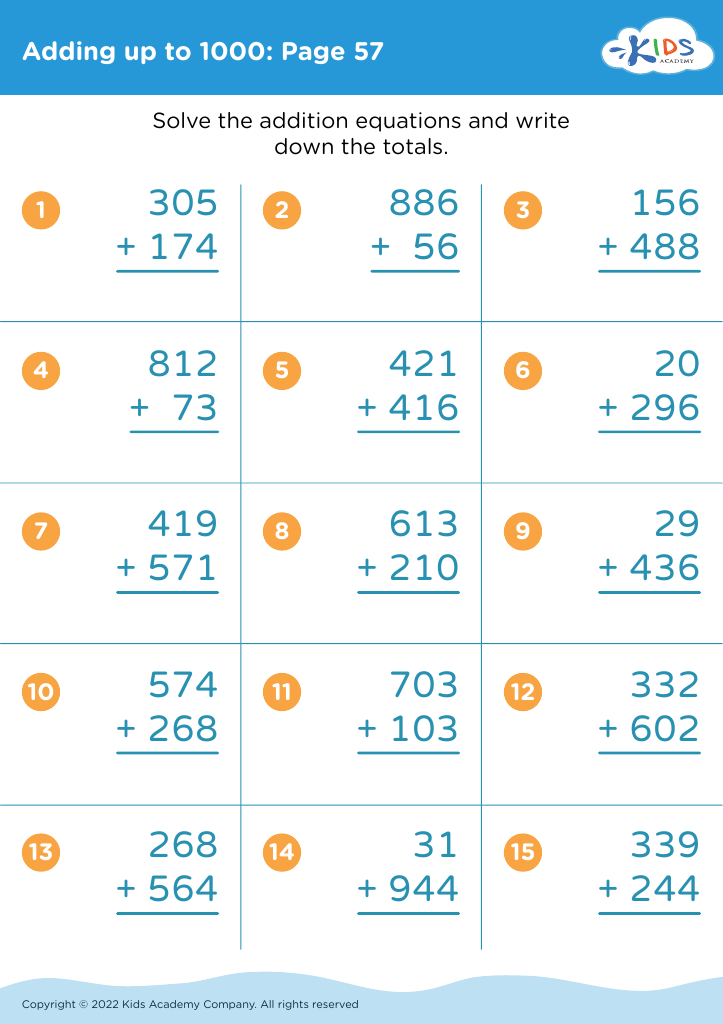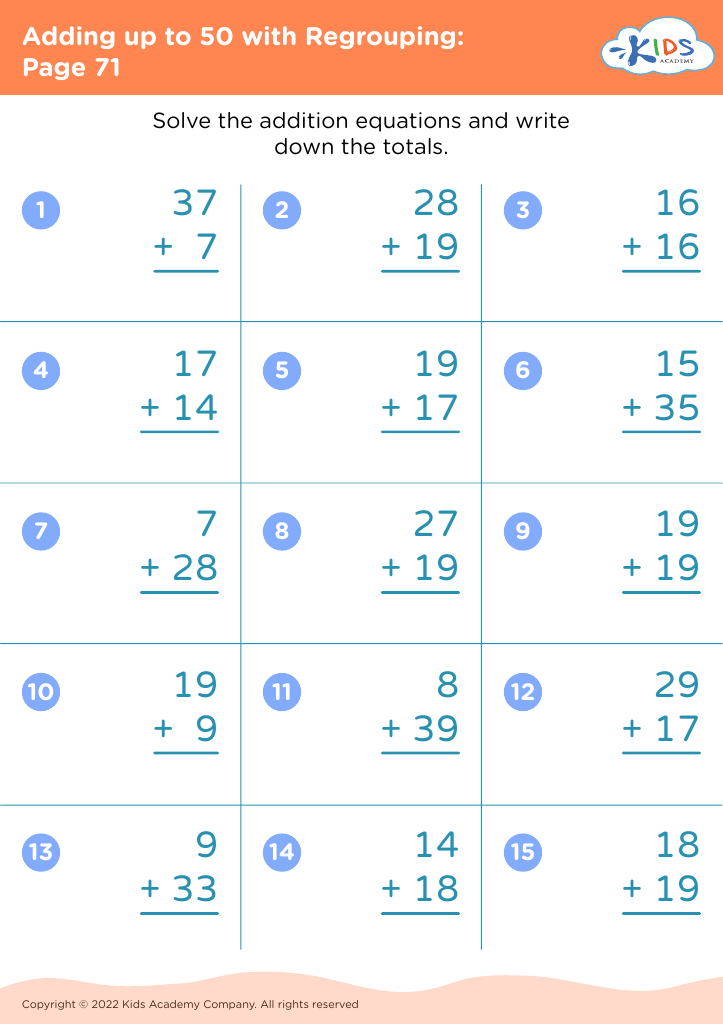Motor skills development Math Worksheets for 7-Year-Olds
4 filtered results
-
From - To
Enhance your 7-year-old's learning journey with our engaging Motor Skills Development Math Worksheets! These specially designed worksheets combine essential math concepts with fun motor skill activities, promoting hand-eye coordination and fine motor skills. Your child will enjoy various exercises, including tracing numbers, connecting dots, and completing puzzles that strengthen their grip and dexterity while developing their mathematical understanding. Perfect for both classroom and home use, our worksheets encourage interactive learning and creativity. Foster your child's cognitive growth and motor skill proficiency in a playful way, laying a strong foundation for future academic success. Explore our collection today!
Motor skill development is crucial for 7-year-olds, particularly as it intertwines with their ability to grasp fundamental math concepts. At this age, children are transitioning into more complex mathematical ideas such as addition, subtraction, and basic problem-solving. Developing fine and gross motor skills supports a child’s confidence in handling learning activities.
Fine motor skills, like grasping a pencil or manipulating small objects, facilitate tasks such as writing numbers and drawing shapes—both essential components of math. When children can physically write numbers clearly or construct geometric shapes, they are more engaged and capable in their mathematical work. Gross motor skills help with coordination and spatial awareness, which are vital for understanding concepts like measurement and geometry.
Moreover, activities that enhance motor skills, such as cutting, building, or playing games, encourage cognitive development and critical thinking. These playful learning experiences recently show that refined motor abilities are closely linked to improved academic performance.
For parents and teachers, focusing on motor skills development alongside math instruction not only enhances the child’s academic experience but also promotes holistic growth, preparing them for future learning success in a fun and engaging manner.
























